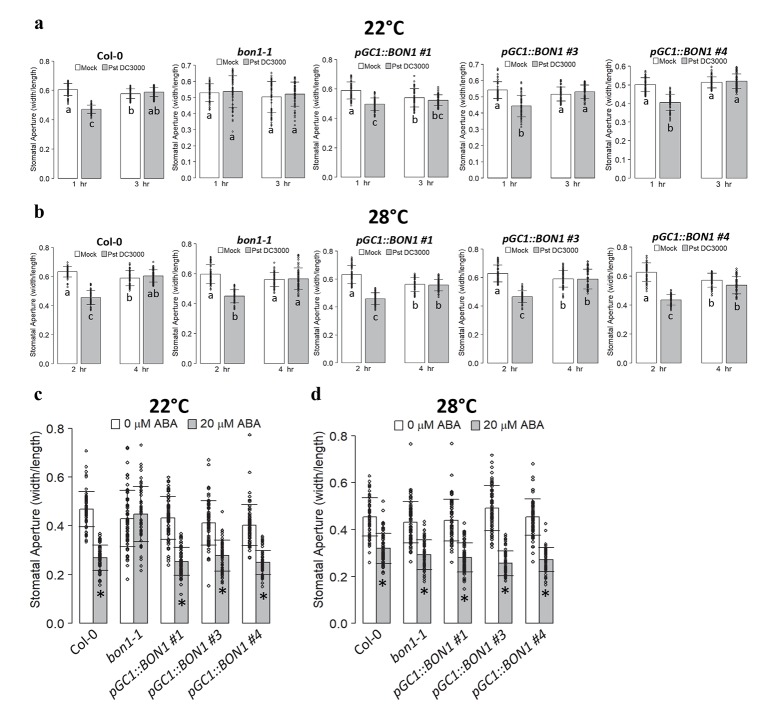Fig 6. Expressing BON1 in guard cells restores the wild-type stomatal responses in bon1-1.
(a, b) Shown are stomatal apertures in response to Pst DC3000 or buffer alone (mock) in Col-0, bon1-1 and three independent pGC1::BON1/bon1 transgenic lines (T3 generation) at 22°C (a) and 28°C (b) at indicated time points. Biological duplicates were averaged and statistically analyzed with one-way Anova followed by Tukey-Kramer test. Different letters indicate statistically significant difference (p< 0.001), error bars indicate SDs (n = 60 stomata). (c, d) Shown are stomatal apertures in response to 20 μM ABA or buffer alone (0 μM ABA) in Col-0, bon1-1 and three independent pGC1::BON1/bon1 transgenic lines (T2 generation) at 22°C (c) and 28°C (d) after 1.5 hr. Biological triplicates were averaged and statistically analyzed with Student’s t test. Asterisks indicate statistically significant differences in stomata aperture between 0 and 20 μM ABA (p< 0.001). Error bars indicate SDs (n = 90 stomata).

